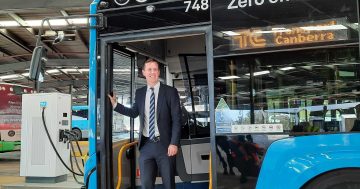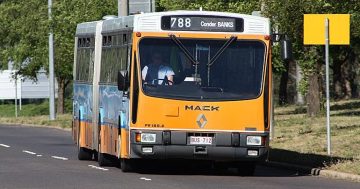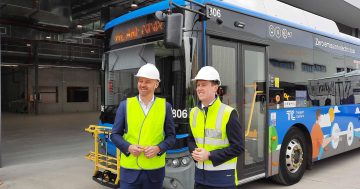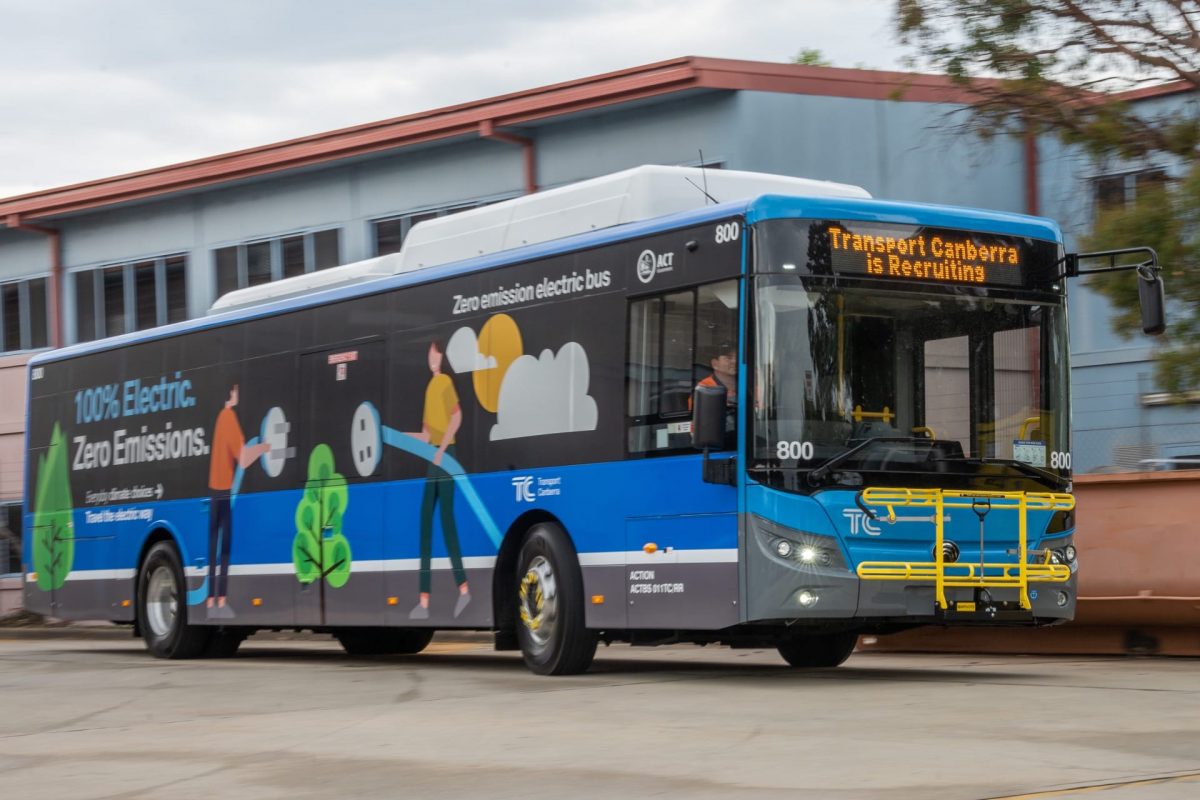
Transport Canberra’s first electric bus started service today (25 January). Photo: ACT Government.
The ACT’s first permanent electric bus hit the road for the first time this morning. Eleven more will be joining the fleet in the coming weeks.
The Chinese-made Yutong E12 battery-powered bus, wearing colourful graphics espousing its ‘zero-emission’ credentials, commenced service for the first time on 25 January, with a regular route from Woden followed by a tour around Civic for members of the media.
Three more in Canberra are still being equipped with bike racks and MyWay ticket machines. The remainder are being fitted out in Sydney by Yutong and VDI coach-builders.
Minister for Transport Chris Steel described BUS 800 as an “important milestone” in the ACT Government’s journey towards moving the city’s public transport system away from fossil fuels by 2040.
“We’ve been ambitious with our investment program to deliver this technology, with 11 more battery electric buses to begin operations across Canberra in the coming weeks and procurement to purchase 90 more underway,” he said.
“This is just the start of our program that will see Canberra eventually move to a completely zero emissions public transport network that is powered by 100 per cent renewable electricity by 2040 or earlier.”
But the road hasn’t been easy.
Two electric buses were trialled in Tuggeranong in 2020, but despite the government labelling it a success, bus drivers have since told Region the buses weren’t without their faults. The supply of power to the depot meant only one could be charged at a time, and lengthy charge times prevented them from being used as efficiently as the current diesel- and gas-powered buses.




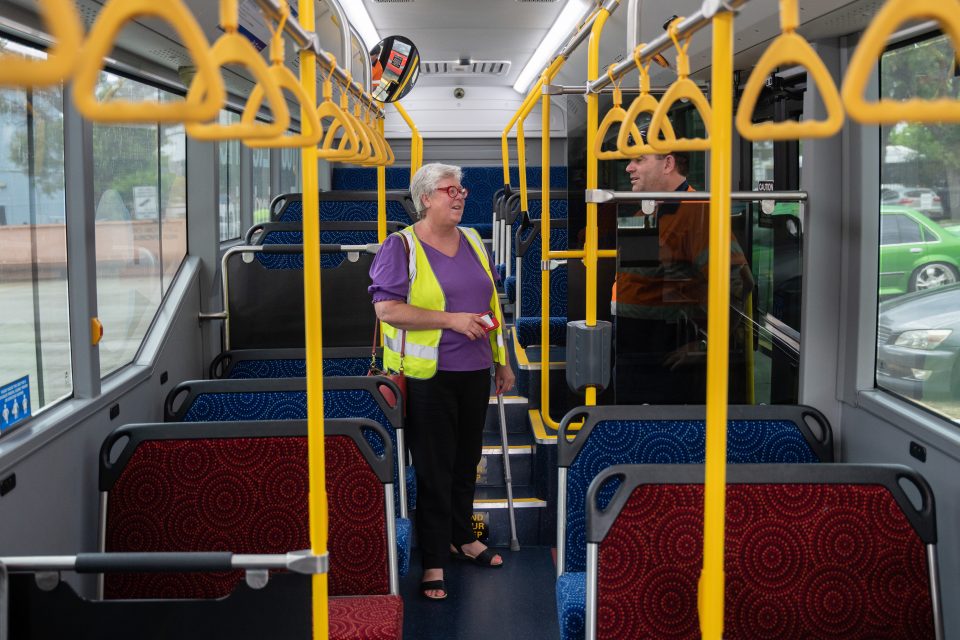
In February 2022, Mr Steel announced a combination of 12 fully electric buses and 26 low-emission diesel buses would take the place of the remaining 33 old orange Renaults by 31 December 2022 – the date the Renaults would fall foul of updated national disability accessibility standards. The new models are leased to give the government time to sort out procurement for a further 90 electric buses, as promised in the last election.
The initial batch of electric buses are three weeks late and the low-emission diesel buses have also been delayed until sometime in the first half of this year due to “supply chain issues experienced by Scania”.
“The delay in the delivery of the 26 low-emissions diesel buses means that a small number of old non-accessible diesel Renault buses can’t be completely phased out of our fleet immediately,” Mr Steel said.
“Unfortunately, they will continue to be used on the bus network for a short period to maintain services for the community until the replacement buses arrive.”
Transport Canberra’s executive branch manager of bus operations Ian McGlinn said the new electric buses will be based in the Tuggeranong depot and have an estimated driving range of 400 km – comparable to the current diesel buses.
“Charge time will vary depending on how much range is left and how many are plugged in,” he said.
“We’ll also be charging them at every opportunity we can to keep their charge up.”
Yutong supplies the chargers, and Transport Canberra is still in talks with EvoEnergy over the power supply to the new Woden depot, which is expected to be completed in late 2024.
“There will be just over 100 vehicles there, with ample provisions for electrification,” Mr McGlinn said.
There’s still no timeline for the remaining 90 buses, but unlike the initial 12, these will be purchased once the procurement process is finished.
“Obviously, with any active procurement, there’s a lot of restrictions around that, but that second tranche and first purchase of battery electric buses is very exciting,” Transport Canberra’s executive branch manager of planning and delivery Sarah Taylor-Dayus said.
Ms Taylor-Dayus said a five-year lease was chosen for these first 12 because it allows more flexibility at the end of the term for either buying the bus or opting for another lease of a more updated vehicle.
“Battery-electric vehicles are still very new technology, so we expect to see it advance further. As batteries get more sleek and lighter, we might like to go to market again to get those more updated models.”
The endgame remains to phase out all diesel and gas buses by 2040, with hydrogen not off the cards either.
“If that’s an option for us, we’ll do it at the right time,” Ms Taylor-Dayus said.
Passengers shouldn’t expect too much of a different public-transport experience in the electric buses, save for a quieter and smoother ride, not to mention wall-mounted phone charging ports for each seat.













